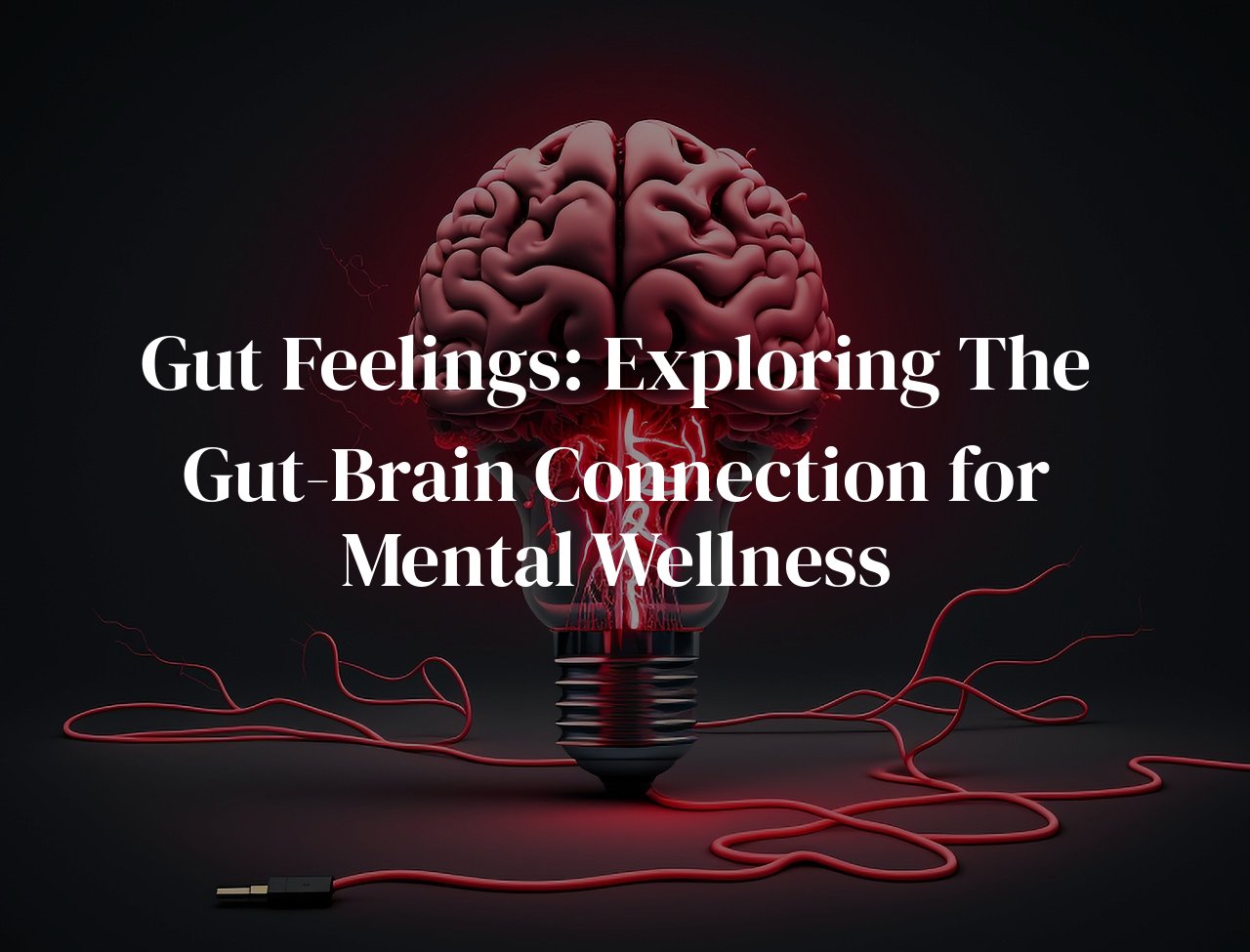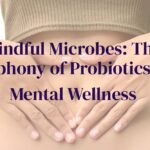
Amidst a growing interest in holistic approaches to mental health care, recent scientific revelations highlight a fascinating protagonist in our well-being: our own microbiome. This blog post will delve into the symbiotic relationship between the myriad of microorganisms residing in our digestive system and our mental state. Asserting that the gut is our ‘second brain’, we’ll unearth how tweaking our internal flora might hold the keys to unlocking new paradigms in treating mental health conditions.
Readers will walk away with a deeper understanding of how the microbiome influentially interacts with the brain, practical dietary strategies that could potentially harmonize this interaction, and a sneak peek into emerging mental health therapies that prioritize gut health. By the end of this exploration, you may view your next meal not just as sustenance, but as a dose of therapy for your mind.
Table of Contents
The Gut-Brain Axis: Understanding the Science
The science behind the gut-brain axis is both intricate and fascinating. Imagine a two-way communication superhighway that links your central nervous system with your enteric nervous system, the extensive mesh of neurons governing your gastrointestinal tract. This network doesn’t just ensure your digestion runs smoothly; it plays a pivotal role in your mental health. Neurotransmitters and hormones produced in the gut can signal to the brain, influencing our mood and behavior.
Delving deeper, the millions of microbes that inhabit our gut, collectively known as the microbiome, are key players in this complex dialogue. These tiny organisms churn out a variety of biochemical signals, including short-chain fatty acids like butyrate, which helps maintain the health of the gut lining, and neurotransmitters like serotonin, which is pivotal for mood regulation. Around 90% of the body’s serotonin is believed to be produced in the digestive tract!
At a personal level, my interest in the gut-brain connection was piqued during an episode of stress-induced gastritis. The experience led me down a rabbit hole of research, where I discovered the powerful impact dietary choices had on my mental wellness. It was astounding to me how a simple shift in eating patterns could alter not only my digestion but my anxiety levels too. This personal journey cemented my conviction in the potency of the gut-brain axis as a conduit for overall health.
Unraveling the intricacies of this alliance has not only opened up novel scientific perspectives but also paved the way for new therapeutic avenues. As researchers continue to untangle the complex interactions between diet, gut microbiota, and the brain, we stand on the brink of a potential revolution in the way we approach mental health disorders—a shift from the brain to the bowels.
From Mood to Food: How Probiotics Can Affect Your Mental State
The link between what we consume and how we feel has always intrigued me, especially regarding probiotics. As someone deeply invested in understanding the gut-brain connection, I’ve personally observed that incorporating probiotics into my diet has had a palpable impact on my mental well-being. Probiotics, or the ‘good bacteria’, have moved into the health spotlight for their role in digestive health. Yet, few realize these microorganisms’ profound effects on mood and mental health.
Exploring this further, I delved into the science behind probiotics and mental health. They’re not just beneficial for a healthy gut; they can be pivotal in fostering mental balance. Probiotics contribute to the production of neurotransmitters like serotonin and GABA in the gut, which play a crucial role in our mood regulation. It was fascinating to learn that the majority of our body’s serotonin is produced in the gut, not the brain!
My journey began with simple dietary changes; adding yogurt and kefir, rich in probiotics, had a subtle yet steady calming effect. As days turned into weeks, my anxiety seemed to ease. I even ventured into fermented foods, such as kimchi and sauerkraut, which further diversified my gut flora and, in turn, reinforced my mental resilience. It felt like I was nurturing my mind through my gut, finding balance in every bite.
But it isn’t just about including probiotics in the diet; it’s about striking a balance with prebiotics – the dietary fibers that feed the beneficial bacteria. Integrating foods like bananas, garlic, and onions helped create a thriving environment for my probiotics to work effectively. This combined approach led to a more robust and balanced gut microbiome, which echoed improvements in my mood and energy levels.
The idea that food can be a catalyst for mental wellness is empowering. Through my experience and the emerging science, it’s clear that a belly full of beneficial bacteria can lead to a heart full of happiness. Understanding this intricate relationship between our gut and brain has added a fulfilling dimension to the pursuit of mental wellness. It begs us to ponder – could the key to our mental health lie in the complex world of our microbiome? It’s a possibility that deserves much more exploration, and I’m excited to be part of that journey, one probiotic at a time.
Personal Anecdotes: My Journey with Dietary Changes and Anxiety Management
In the entangled narrative of my life, where anxiety often took the main stage, the realization that the very sustenance I revered could be both a cause and a solution to my mental upheavals was nothing short of an epiphany. Juxtaposing the palpitations of my heart with the rumblings of my gut, I began to discern that these two seemingly disparate entities were in fact in constant communication, a discourse that affected my daily well-being.
As my understanding deepened, I turned towards the burgeoning field of the microbiome and its uncanny influence on mental health. This was not merely academic; it was personal. Introducing probiotic-rich foods into my diet wasn’t an overnight miracle, but rather a deliberate, hopeful act of reclaiming my inner harmony. With each spoonful of kefir, each forkful of kimchi, I visualized my gut flora diversifying, like a once stagnant garden blooming into a vibrant biome, potentially easing my mind in the process.
There were setbacks, of course. Moments when comfort foods, laden with sugars and unhealthy fats, lured me back into old, deleterious eating habits, much to my mental chagrin. Yet, each relapse into anxiety was a lesson in itself, a reminder of the delicate equilibrium within.
Perhaps most telling was when I personalized my diet further, integrating prebiotics through garlic, onions, and bananas. It felt as if I was laying down the foundational stones for a sturdy microbial fortress. The changes in my anxiety were not monumental, but the subtle shifts in mood, the slight lengthening of the fuse before a bout of anxiety, suggested that the dietary choices did indeed have weight.
This personal journey is far from unique, I realize, but it is a testament to our shared humanity and the universal pursuit of mental wellness. Although the path is complex and nonlinear, it’s paved with promising whispers from scientists and nutritionists who reveal that what we eat might adjust not only our waistlines but also the cognitive symphonies in our heads. Herein lies my tale, a single thread in the intricate tapestry of the gut-brain connection, still being woven with every bite, every breath, every beat of our very hearts.
Potential Therapies: The Future of Psychobiotics in Mental Health
The exploration into the gut-brain connection unveils a future brimming with innovative interventions, particularly within the realm of psychobiotics. This term, initially unfamiliar to many, encapsulates a revolutionary concept: utilizing specific probiotic strains to target mental health. Imagine, I pondered a few years back when my journey into the gut-brain nexus began, if the anxiety that clung to me like shadow could be alleviated by something as simple as altering the microbial landscape within me. Today, research is catching up with these musings.
Current clinical trials are honing in on strains showing promise in alleviating symptoms of depression and anxiety. The potential therapies revolve around formulating these probiotics into accessible and effective treatments. One such strain is Lactobacillus rhamnosus, which showed its prowess in reducing stress-induced anxiety and depression in animal models, paving the pathway to human clinical trials. Such strains might become household names in the future, prescribed alongside, or even in place of, traditional psychotropic medications.
Moreover, the probiotic formats are diversifying: from capsules, powders to even functional foods enriched with psychobiotics. Imagine eating a breakfast designed not just to fill your stomach but to calm your mind. Personalization is another frontier. Tailored probiotic blends, based on individual microbiome analyses, promise to cater to our unique mental health landscapes. It’s a world where your therapy is fine-tuned to the microbial populations in your gut.
The role of prebiotics — nondigestible fibers that nourish beneficial bacteria — is also becoming more prominent. Combining these with psychobiotics could enhance the efficacy of mental health therapies, creating a synergistic relationship between prebiotics and probiotics. Research continues to explore this pairing, hinting at the potential for over-the-counter ‘mood formulas’ in the not-too-distant future.
Finally, as a fierce advocate for holistic health, I witness the first-hand impacts of incorporating broader lifestyle changes alongside dietary interventions. Future therapies may include comprehensive plans that couple psychobiotics with stress reduction techniques, physical activity prescriptions, and sleep hygiene practices, providing a multi-tiered approach to mental wellness. The potential seems limitless, and it fills me with hope to imagine a day when mental health care is inherently symbiotic with our gut biology. In moving towards that day, I continue to share my own experience and watch the space of psychobiotics with rapt attention and eager anticipation.
Beyond Probiotics: Integrating Diet and Lifestyle for Mental Harmony
While exploring the intricate world of gut health and its influence on mental well-being, I’ve discovered that the harmony between diet and lifestyle can sing a tune of inner peace and psychological balance. Through trial and error, guided by thorough research and consultation with nutritionists, I’ve learned that probiotics are merely one note in the symphony of factors contributing to mental harmony.
A diverse, nutrient-rich diet is the cornerstone of this approach. Incorporating a rainbow of fruits and vegetables not only delivers a plethora of vitamins and antioxidants to support brain function but also provides a variety of fibers that feed a healthy microbiome. Lean proteins, omega-3 rich fish, and whole grains contribute to a balanced diet that sustains energy levels and mood stability throughout the day.
Physical activity, another key element in this integrative strategy, does wonders for the mind, as I can attest from my morning yoga practice and the invigorating walks in nature I commit to each weekend. Exercise releases endorphins and promotes neurogenesis, strengthening the mind-body connection and enhancing our microbiome’s health.
Mindfulness and stress-management techniques, like meditation and deep-breathing exercises, have become non-negotiable parts of my daily routine. They train the mind to focus on the present and reduce stress levels, which is significant because chronic stress can disrupt gut flora and aggravate mental health issues.
The sweet symphony of sleep cannot be overlooked, as it cleanses the brain of toxins and consolidates memories. I prioritize 7-9 hours of quality sleep, recognizing that it greatly impacts my mood and cognitive functions, revealing its indubitable connection to gut health.
Lastly, fostering meaningful social connections provides a sense of belonging and support, essential for our emotional and mental health. Reaching out to friends, dedicating time to family, and engaging in community work fill the soul with joy and contentment, contributing to the overall melody of mental wellness.
Embracing this multifaceted lifestyle has been transformative, offering a deeper sense of control over my mental health. I invite you to consider these threads that weave through the tapestry of our well-being and find your unique rhythm in the quest for mental harmony.
Conclusion
As we’ve embarked on this journey through our internal ecosystem, it’s become evident that the gut microbiome may wield significant influence upon mental health. Approaching mental wellness through the lens of microbiome care could herald a new frontier in therapeutic interventions. The compelling narrative woven by science suggests that we have the opportunity to co-author our mental health stories with every meal we consume. It’s time we give credence to our ‘gut feelings’ and harness them for a happier, healthier mind.



